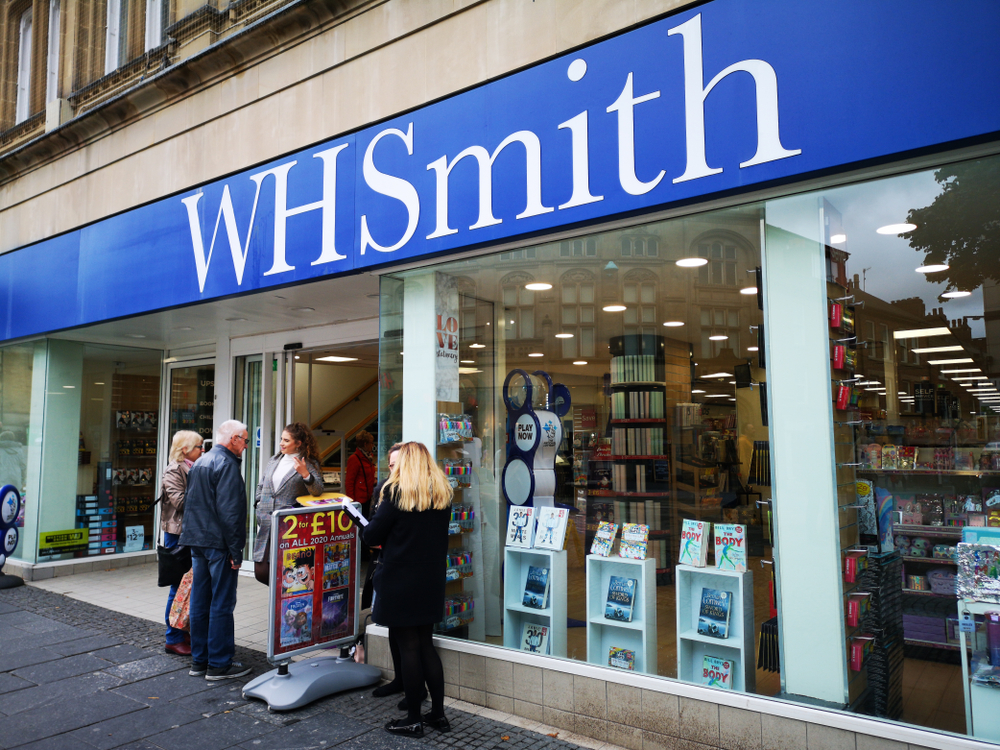The 2021 Budget was set out by Chancellor Rishi Sunak earlier today discussing how the government is going to spend the nation’s money.
It marked his second budget of the year as he delivered a statement on March 3 after the previous autumn’s address was delayed due to the Covid-19 pandemic.
Following speculations, Sunak confirmed that the National Living Wage will rise next April from £8.91 to £9.50 per hour – increasing by 59p per hour for those aged 23 and over.
Unemployment is expected to peak at 5.2 per cent.
In order to support the declining retail sector, the government today introduced a new 12-month business rates improvement relief which will offer 50 per cent business rates discount up to a maximum of £110,000.
READ MORE: Budget 2021: Here are the key points
BRC chief executive Helen Dickinson welcomed the property investment relief, saying that this is an initiative the BRC had called for.
However, she described the budget as a “mixed bag of announcements” and added that it was a missed opportunity for retail and the three million people who work in the industry.
“Today, the Chancellor spoke of a new age of optimism, but retailers will struggle to share his confidence after a budget that does not do enough to reduce the burden of costs bearing down on our shops, our high streets and our communities,” Dickinson argued.
Regarding the national living wage, Dickinson said the retail industry strongly supports the intention to raise wages in the industry and has been working hard in recent years to secure the productivity improvements needed to ensure such increases are sustainable.
“Currently, retailers are grappling with an assortment of government-imposed costs – higher National Insurance Contributions, higher Corporation Tax, sky high business rates – at a time when sales are slowing and supply chains are experiencing significant disruption,” she said.
“Unfortunately, the combined impact of additional costs will add to the pressure on prices – with three in five retailers saying that prices will rise before Christmas.”
New West End Company’s chief executive Jace Tyrrell told Retail Gazette that it is “encouraging” to see the chancellor finally act upon the need to reform the business rates system.
“Cancelling the inflation-linked rise to the multiplier may ensure that rates won’t go up this year, but they are still too high,” he argued.
“A 50 per cent discount for the retail and hospitality sectors will help some struggling high street businesses, but not all.
“By capping the 50 per cent high street discount at £110,000, the benefit means little to city centre businesses.
“For a store in London’s West End, it will result in less than a one per cent cut in their business rates bills for just one year.
“This only results in a cut of around £1 billion each year on a £25 billion business rates bill – the equivalent of a four per cent cut. This falls far short of a fundamental review and is a very disappointing outcome.
“It does little in the long term to meet the government’s manifesto commitment to reduce the burden of business rates.”
Unibail-Rodamco-Westfield UK chief operating officer, Scott Parsons told Retail Gazette that these temporary changes to the business rates regime are welcomed but are “not enough” to significantly help retailers that have been battered by falling footfall throughout the pandemic.
“Permanently reducing rates is the simplest and most effective way to kickstart the recovery of the industry and reinvigorate our towns and cities by making them attractive for businesses to invest in,” he said.
“London in particular risks losing its crown as one of the retail capitals of Europe, as international businesses are put off by the prospect of having to pay on average ten times higher occupancy taxes than they would in any other European country – that’s not 50 per cent more, or even twice as much, but ten times higher than in other markets.”
John Webber, head of business rates at commercial real estate firm Colliers agreed and described the chancellor’s measures as “underwhelming”.
“The chancellor has made it clear he is determined to continue to raise £25 billion from this tax and as a result his proposals only tinker with the system,” he argued.
“The measures suggested will not have a major impact on saving the high street in the longer term.”
Webber added that he would support the new business rates relief for property improvements for a 12-month period, but this policy has been in place in Scotland for some time and does not appear to have led to any great investment activity.
“Twelve months is also a very short period, so the benefits of this proposal are limited,” he said.
Meanwhile, retail industry charity the Retail Trust’s chief executive, Chris Brook-Carter believes that increasing the national living wage has the potential to provide much-needed relief for thousands of retail workers who have faced “extraordinary financial, physical and emotional pressures” over the last year and a half.
“As a charity, the Retail Trust has given out £1.2million of non-repayable financial aid since the start of the pandemic to help people working in the industry to pay bills and keep a roof over their heads,” Brook-Carter said.
“Our only hope is that the increased wages bill that will follow doesn’t lead to more job losses or retailers having to close more stores.
“Retail employment is absolutely vital in tackling issues like social mobility and supporting young people into jobs and training so the measures announced around business rates will be really important when it comes to helping retailers’ ongoing recovery from the pandemic.”
British Property Federation chief executive Melanie Leech told Retail Gazette that the package of measures on business rates relief will bring some welcome temporary relief to our high streets but demonstrate how badly further, fundamental reform is needed.
“While a move to three-year revaluations is welcome, we continue to urgently call for annual revaluations,” she said.
“Businesses need to see long-term reductions in the rates they pay rather than short term fixes.
“The current practice of downwards transitions needs to end and would give high streets an £8.5 billion boost and enable them to forward plan and protect jobs.
“We are pleased that the chancellor has also responded directly to the BPF’s call for business rates relief to encourage building improvement and to support the transition to net zero.
“This will give a significant boost to investment in revitalised, more sustainable town centres.”
Click here to sign up to Retail Gazette‘s free daily email newsletter


















